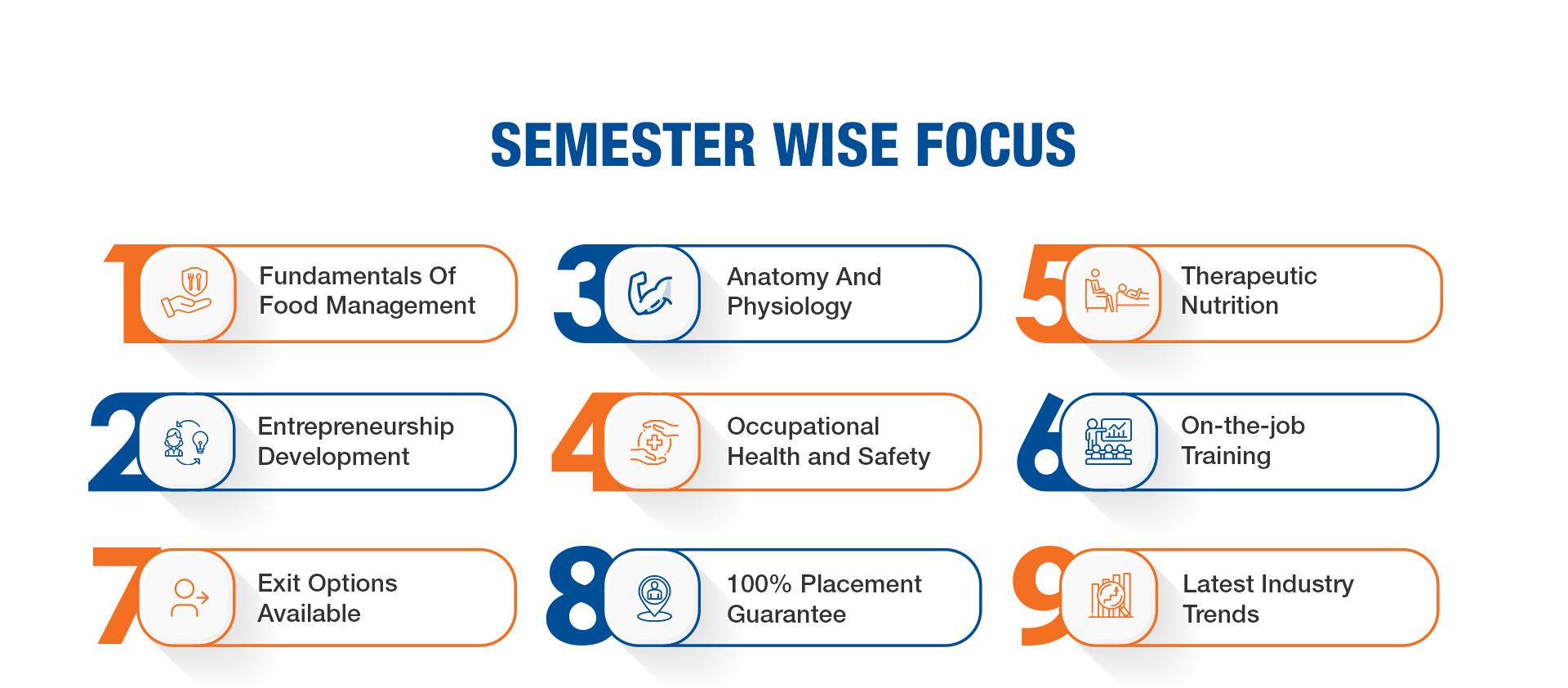START YOUR DREAM JOURNEY WITH
THE TRUST OF VLCC SCHOOL OF BEAUTY
In Association With



START YOUR DREAM JOURNEY WITH
THE TRUST OF VLCC SCHOOL OF BEAUTY
In Association With



VLCC School of Beauty is proud to introduce a Bachelor's Degree program in the field of Health & Nutrition. Our Bachelor of Vocational Studies in Nutrition is designed to provide students with a comprehensive understanding of nutrition science, dietetics, and wellness management.
This comprehensive program offers a balanced combination of theoretical understanding and hands-on practical experience. By enrolling in our B.Voc. in Nutrition, you will be prepared to take a leadership role in the ever-evolving health and nutrition industry. Our aim is to empower students like you to not only succeed but also thrive in this dynamic and exciting field.

The B.Voc course in Health & Nutrition prepares students for successful health and nutrition career through subjects like Fundamentals of Nutrition clinical nutrition, sports nutrition, food science and technology, and wellness management. The curriculum combines theory, hands-on training, and practical exposure, equipping students to excel in the industry.
Enroll NowFundamentals
Of Nutrition
Clinical
Nutrition
Sports
Nutrition
Food Science And
Technology
Wellness
Management


200+ Organizations And Counting














The Bachelor of Vocation (B.Voc) in Health and Nutrition is an undergraduate program that equips students with practical skills and theoretical knowledge related to health, nutrition, dietetics, and wellness. This program typically integrates vocational training with academic learning to prepare students for various roles in the health and nutrition sector.